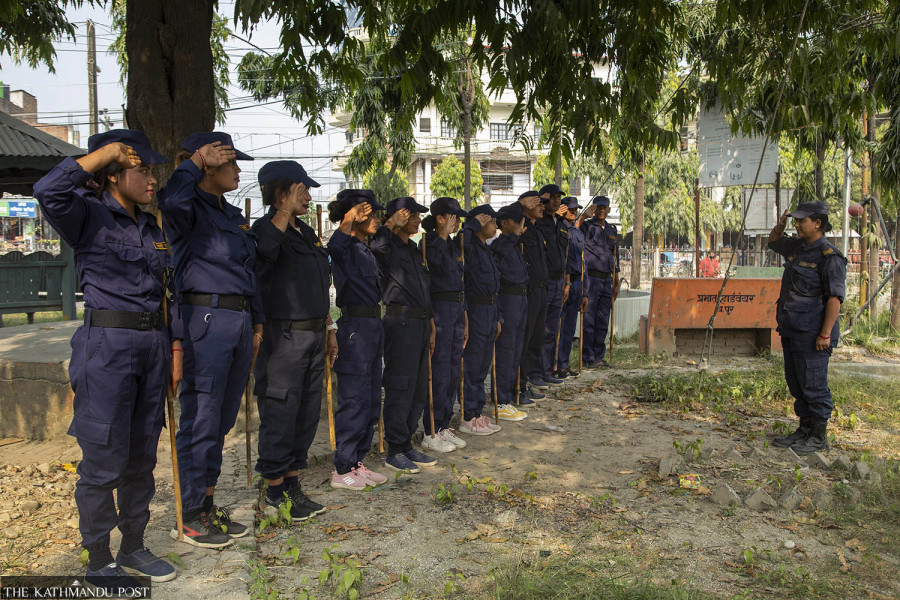National
Government to recruit temporary police for March elections
The number of recruits will be decided based on the number of polling stations the Election Commission will set up.
Binod Ghimire
A high-level security meeting on Friday decided to recruit temporary police as additional support for the security of the March 5 elections.
The meeting led by Sagun Shumsher Rana, a member of the Election Commission, concluded that the existing strength of security forces is not enough to enforce law and order for the single-phase election.
“All security agencies have said holding the elections peacefully in a single phase is possible but that requires the recruitment of temporary police and logistical support from the government,” said Suman Ghimire, information officer at the commission.
In addition to acting chief election commissioner Ram Prasad Bhandari, lieutenant general of Nepali Army Pradeep Jung KC, chief of the Armed Police Force (APF) Raju Aryal, chief of the department to intelligence Tekendra Karki; and Surendra Bahadur Gurung, additional inspector general of Nepal Police, were present in the meeting. It was also attended by Rameshwor Dangal, the home secretary, and defence secretary Suman Raj Aryal.
Ghimire said the number of temporary recruits will be determined after finalising the number of voters. The number of the security personnel needed depends on the number of polling centres. The commission determines such centres based on the number of voters. “We can make such calculations once the voter registration is over,” said Ghimre.
The commission has set November 16 as the deadline for voter enrollment. As many as 115,000 temporary police were recruited to support the security agencies in the 2022 general elections. As the number of voters will increase this time, and so will the number of polling centres, the need for temporary police for the March polls will be greater.
Besides, with thousands of prison inmates who fled during the September Gen Z revolt still absconding and the security agencies yet to recover hundreds of firearms, the security situation has become more sensitive. The higher the security risk, the bigger the deployment of security personnel, according to officials.
As per the commission’s report, as many as 18,148,654 voters have been listed as of Chaitra-end (mid-April) of the previous Nepali year 2081.
Three years ago, 17,988,570 Nepalis—9,140,806 men, 8,847,579 women, and 185 from other categories—were eligible to vote. By April 2025, in two and a half years, the number increased by 160,054 to 18,148,654. Over 80,000 new voters have been added in the last one month. Still more than two weeks before the deadline, the number will increase by thousands.
According to the commission’s statement issued after the meeting, representatives of the government and security agencies said that chief district officer-led security committees were developing election security strategies to ensure peaceful elections.
Security deployment will be based on the need and sensitivity of the respective polling stations, the statement said, quoting the officials.
According to an official present in the meeting, the representatives from the Nepal Police and the APF have raised logistical issues as they lost dozens of vehicles, police stations and arms during the two-day youth protests. “They say the government should provide the logistics necessary for them to function effectively,” said the official.
The government reiterates that it is ready to provide necessary logistics for the polls. It has already released the budget to procure 251 vehicles for the three security agencies excluding the Army.
The commission has concluded that it requires Rs7.8 billion to hold the March 5 elections. The figure, however, doesn’t include the cost for security arrangements. “We have presented the cost. The finance ministry is studying it,” said Narayan Prasad Bhattarai, the commission spokesperson. “The ministry is yet to approve the budget.”




 18.12°C Kathmandu
18.12°C Kathmandu














